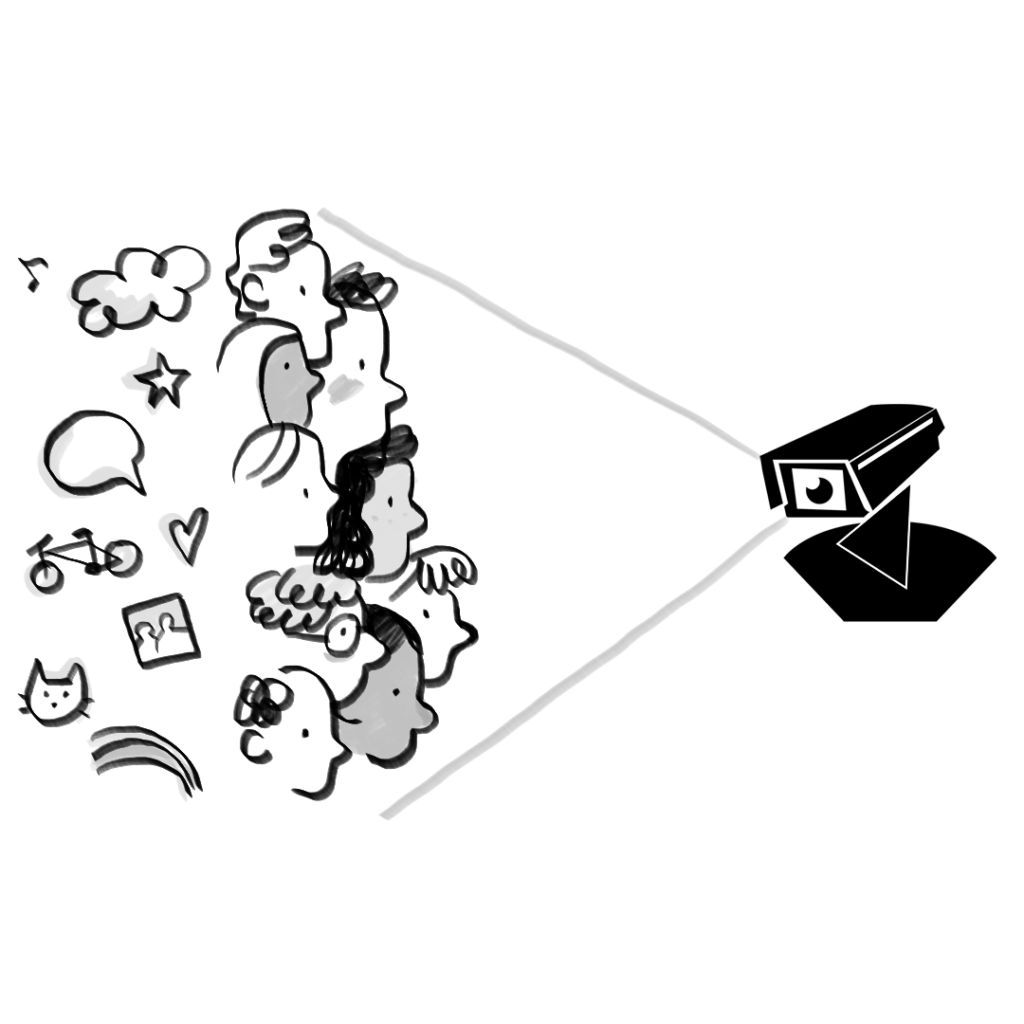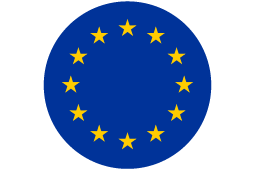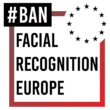Biometric mass surveillance as general monitoring
Digital technologies make general monitoring of people easier, but these practices have been around for a long time. Infamous surveillance societies throughout history and today have used general monitoring as a way to keep tabs on populations: think the East Germany Stasi or the way in which the government in China surveil the population.
This may sound extreme – but real examples that are appearing across Europe have a lot more in common with these regimes than you might.
So, WHAT IS GENERAL MONITORING?
When we say general monitoring, we’re talking about the use of surveillance devices to spy on every person in a generalised manner.
This could be, for example, by using a camera in a public space (like a park, a street, or a train station). It can also happen in other ways, for example when governments or companies listen in to everyone’s phone calls, or snoop on everyone’s emails, chats, and social media messages.
That’s why another term for general monitoring is mass surveillance.

But why is that harmful?
General monitoring is harmful because it prevents us from enjoying of privacy and anonymity. These democratic principles are incredibly important as they enable us to live our lives with dignity and autonomy.
Depriving people from anonymity and privacy can have real and serious impacts: imagine governments and companies knowing all of your health problems because they’ve tracked which medical establishments you go to over time. I
Imagine being surveilled because you were seen going to an LGBTQ+ bar – especially if you live in a country where LGBTQ+ people do not enjoy full rights. Imagine your future life prospects (e.g. work, university) being limited because you were caught loitering or littering as a teenager.
Another reason why general monitoring is dangerous is because it alters the justice systems and the principles governing it – such as “innocent until proven otherwise”. If governments want to watch us, they are supposed to have a proper and well-justified reason for doing so, because we all have a right to be presumed innocent until proven guilty. With general monitoring, this is flipped on its head: every single person in a particular group or a whole population is treated as a potential suspect.
Below, you can find evidence of biometric systems in the EU watching people for all of these reasons. This only gives us a hint of how this data might be used in the future.
Examples

In the German city of Cologne, hundreds of thousands of people have been placed under biometric surveillance outside LGBTQ+ venues, places of worship and doctors’ surgeries: “The rise and rise of biometric mass surveillance in the EU” [p.20].

Across Europe, people exercising their right to peaceful assembly have been targeted through general biometric monitoring in at least Germany, Austria, Slovenia, the UK, and Serbia, and the French government have also attempted to do this as well. It’s not just streets – we’ve seen similar systems in train stations (Germany), airports (Belgium), football stadiums (Denmark and the Netherlands) and much more.

In the Netherlands, three cities have been turned into ‘Living Labs’ where the general monitoring of people’s biometric data is combined with general monitoring of their social media interactions and other data, creating profiles which are then used to make decisions about their lives and futures: The rise and rise of biometric mass surveillance in the EU” [p.88]

In Greece, the European Commission’s Internal Security Fund gave €3 million to private company Intracom Telecom to develop facial recognition for police to use against suspects, witnesses and victims of crime: https://edri.org/our-work/facial-recognition-homo-digitalis-calls-on-greek-dpa-to-speak-up/

In Czechia, the police bought Cogniware facial recognition software that can predict emotions and gender and according to Cogniware’s website, has the capacity to link every person with their financial information, phone data, the car one drives, workplace, work colleagues, who they meet, places they visit and what they buy: https://edri.org/our-work/czech-big-brother-awards-worst-privacy-culprits/


















































































